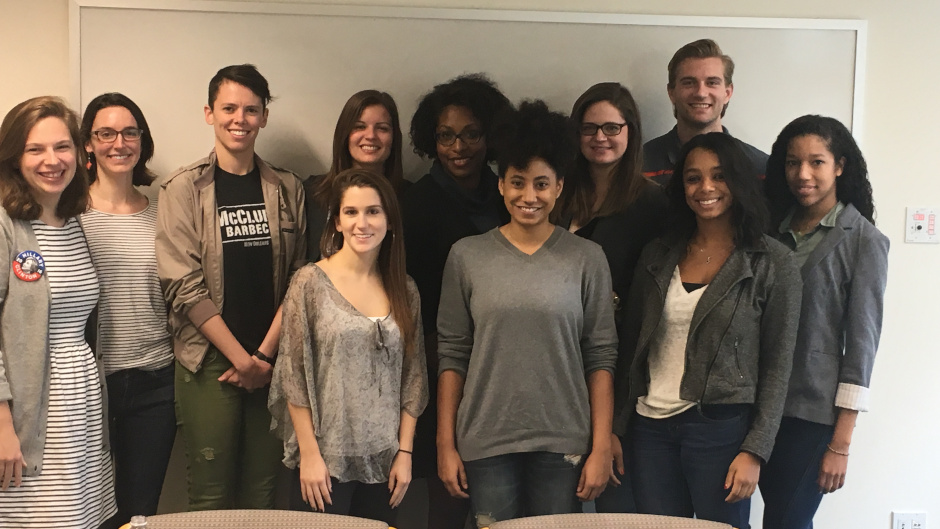In the summer of 2016, the Environmental Justice Clinic expanded its community outreach by creating new partnerships with community organizations, including the South Miami's Concerned Clergy & Citizens Coalition and the Collective Empowerment Group.
The goal and mission of both groups make them perfect partners for the Environmental Justice Clinic. The clinic has partnerships with churches through the Historic Black Church Program but nothing of this magnitude. The alliance with the CCCC and CEG signifies a step forward in the clinic’s goal of providing historically disenfranchised communities with equal access to resources and brings the clinic’s church partnership to over 60.
"This partnership hopefully will allow us to position ourselves as needed to legally urge both our local government and the minority community of South Florida to work together to bring about economic justice," says Pastor Joaquin Willis, pastor of the Church of the Open Door and president of the CEG.
The CEG grew out of the Collective Banking Group, Inc., formed in 1993, as a result of concerns raised by pastors and church members in Prince Georges County and Metropolitan D.C. area. Its focus was inequitable access to services provided by local banks and business. In 2010, to reflect the growing mission of the CBG, the group changed their name to the Collective Empowerment Group, Inc.
The CEG expanded their focus to include education, healthcare, homeownership preservation, public safety and public policy. The group expanded across the United States, including a tri-county coalition of forty churches. The group took on the role of “building a healthy and empowered church, people and community.”
The other group, the CCCC, formed in response to growing concerns and hardships facing the citizens of South Miami, in particular, the Marshall Williamson neighborhood -- a historic black community in the City of South Miami. The group is made up of clergy and community members who want to promote the growth of their community and is dedicated to pursuing rights education, research, and policy work on matters relating to civil rights, environmental justice, and municipal equity.
The partnerships provide the Environmental Justice Clinic with unprecedented access to churches and communities. The partnership also allows the groups to come to the clinic with specific community concerns. For example, the clinic is working with the CCCC to scrutinize and combat a lack of affordable and fair housing in their community.
Through the CEG, the clinic has undertaken the task of researching and remedying municipal inequity. Students have identified several examples including educational services, libraries, parks, healthcare, and police/emergency response time discrepancies. Due to the size and potential impact of this project, it is now called it the municipal equity campaign.
"I am excited about the potential of this partnership; it is past time to create a climate for municipal equity in the minority and especially in the black community,” says Pastor Willis.
The campaign is about identifying areas of concern in different communities. Once the problems are identified the project gives tips on how to explore what is being done, if anything, about this issue in the community. The idea is that resident will be empowered to do the work of lawyers and investigators.
"The Environmental Justice Clinic's municipal equity campaign is a community education and outreach project undertaken in collaboration with more than 60 inner-city Black churches and dedicated to the fair treatment of low-income communities of color by the South Florida private, nonprofit, and public sectors, ” says Professor Anthony Alfieri.
The students presented their first phase of the project to the CEG on November 11, 2016. With the help and input of the 40 church groups, the clinicians are hopeful that the campaign will grow quickly.
“Projects like the municipal equity campaign make me excited about the future and what can be done to tackle real issues facing underprivileged communities,” says Kiana Courtney a current student working for the Environmental Justice Clinic.
In the Spring 2017 semester, the students are looking forward to working with different community leaders to identify areas importance to further study.

